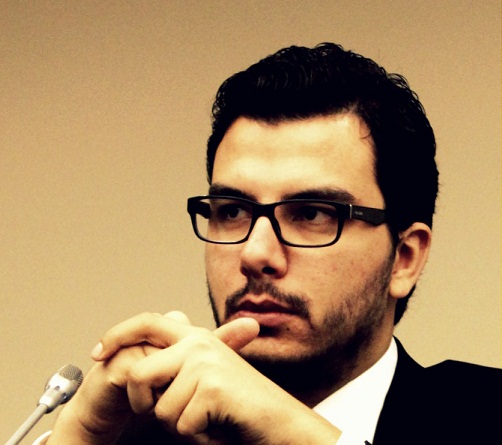Columnist Ziad Bahaa El-Din explores the reasons behind the current tension between Egypt and the United States, the uproar of US public opinion and Egypt’s path to democracy.
Ziad Bahaa El-Din
The United States and the democratic path in Egypt
Al-Shorouk Newspaper
Columnist Ziad Bahaa El-Din begins his article with the trial of foreign NGO workers accused of accepting illegal funding. He explains that he happened to be in the United States when the verdict came out and that people were shocked when the public prosecutor transferred the case to court, and when the government allowed a plane with the Americans involved in the trial to take off.
The trial adopted a political dimension he argues, because it expressed the tension in the relationship between the US administration and the Egyptian government over the “future of democracy in Egypt”.
“The US administration has supported the Muslim Brotherhood from the first days of the revolution in Egypt,” Bahaa El-Din writes. He explains that even though the Supreme Council of Armed Forces (SCAF) was the governing power, the statements of the US were pro-Muslim Brotherhood. He adds that they considered the Muslim Brotherhood “the lawful heir to the Egyptian revolution, and the fittest to fill in the void that would establish stability and conserve US interests.”
The presidential elections proved the US right as the Freedom and Justice Party prevailed, Bahaa El-Din says, noting: “They have chosen the right path, since it was the people’s choice.” However, he points out that the situation changed and parliament was dissolved, the constitution’s drafting was disorderly and unclear, and the attack on Egyptian judiciary and media began. In addition, he also believes that Morsi adopted a tyrannical flair in November 2012 “to tighten his rule over the country’s apparatus and institutions with no regard to the constitution, democracy or the law.” However, the US did not change its ways and still supported the Muslim Brotherhood’s methods despite worsening economic and political conditions.
Bahaa El-Din ties this political background with the uproar in the US over the NGO trial verdict. Mainly because it proved that the system they were supporting failed them and that the Egyptian judiciary was compromised.
He added that during his visit to Washington, US researchers and experts sent an open letter to Obama, asking him to pressure Morsi to pardon those involved in the trial. They suggested that the US government should stop sending aid to Egypt, “which means a group punishment of the Egyptian people”. However, Bahaa El-Din rejects this possibility, and insists that the tension in the Egyptian-US relationship is temporary. He adds that it relates more to US’s need to “improve” its image, especially since the case did not garner international attention until the verdict came out.
He concludes that democracy in Egypt will not be achieved through external pressure, and that “we should not accept any kind of intervention, as it is the responsibility of Egyptians to achieve democracy.”



